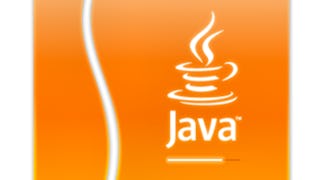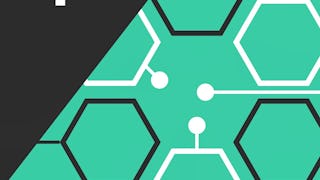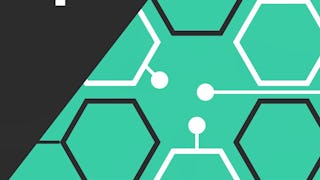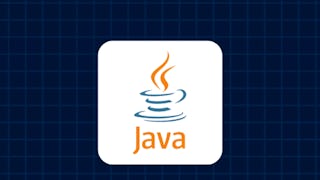Solve real world problems with Java using multiple classes. Learn how to create programming solutions that scale using Java interfaces. Recognize that software engineering is more than writing code - it also involves logical thinking and design. By the end of this course you will have written a program that analyzes and sorts earthquake data, and developed a predictive text generator.



Java Programming: Principles of Software Design
This course is part of Java Programming and Software Engineering Fundamentals Specialization



Instructors: Robert Duvall
108,999 already enrolled
Included with 
(1,484 reviews)
Skills you'll gain
Details to know

Add to your LinkedIn profile
12 assignments
See how employees at top companies are mastering in-demand skills

Build your subject-matter expertise
- Learn new concepts from industry experts
- Gain a foundational understanding of a subject or tool
- Develop job-relevant skills with hands-on projects
- Earn a shareable career certificate


Earn a career certificate
Add this credential to your LinkedIn profile, resume, or CV
Share it on social media and in your performance review

There are 5 modules in this course
Welcome to “Java Programming: Principles of Software Design”! We are excited that you are starting our course to learn how to write programs in Java, one of the most popular programming languages in the world. In this introductory module, you will hear an overview of this course and be introduced to the supporting resources available.
What's included
1 video1 reading
In this module, we will introduce a data set containing details about earthquakes around the world. You will learn how to pull this data into a program, search through the data, and filter the data based on desired criteria. By the end of this module, you will be able to (1) write programs that include multiple classes and ArrayLists of class types, (2) find the maximum value in an ArrayList, (3) use a Filter interface to search through data, (4) implement interfaces with method signatures, and (5) combine several filters together.
What's included
11 videos4 readings3 assignments
In this module, you will continue using real earthquake data to explore several sorting algorithms. You will learn how to implement a selection sort and a bubble sort, then be introduced to a Java method Collections.sort, which sorts with much greater efficiency. By the end of this module, you will be able to (1) implement several sorting algorithms from scratch, (2) use efficient pre-existing sorting classes, (3) modify a class’s compareTo method to choose the criteria by which objects of that type are ordered, and (4) write classes that implement the Comparator interface to create interchangeable sorting criteria.
What's included
12 videos3 readings3 assignments
In this module, you will explore some of the underlying concepts of predictive text. The first lesson will introduce random character generation and then how to train the character selection based on an input text. The second lesson will extend this concept to complete words. By the end of this module, you will be able to: (1) base random text generation on the frequency of characters in a training text, (2) collect a set of characters that occur in a text after randomly chosen initial character(s) to create a semi-random text, (3) extend the predictive text generation to use whole words, and (4) implement your own .equals method to compare complex data types.
What's included
15 videos5 readings5 assignments
As you reach the end of this series, you may wish to extend your Java experience to tools beyond those provided here. This module will cover some of the Java basic information that is needed to program without BlueJ or the edu.duke library. After completing this module, you will be able to: (1) write a main method to start a Java program in any programming environment, (2) use the “static” keyword to modify fields, (3) find alternative editors to use with Java, (4) use exceptions to debug your program and make it more robust, and (5) reference Java libraries that are necessary to read files without the edu.duke library.
What's included
13 videos2 readings1 assignment
Instructors


Offered by
Recommended if you're interested in Software Development
Why people choose Coursera for their career




Learner reviews
1,484 reviews
- 5 stars
74.52%
- 4 stars
18.80%
- 3 stars
4.11%
- 2 stars
1.01%
- 1 star
1.54%
Showing 3 of 1484
Reviewed on Jul 27, 2020
These set of four made not only learning Java fun and also explored on the applications software engineering it has on the real world, touching a little bit of everything in the same field.
Reviewed on Dec 6, 2020
A good course to continue learning Java. This Specialization has been a great journey for my learning. The assignments were always challenging to complete.
Reviewed on Jun 15, 2016
Like all the modules of this Java specialization, the teachers are very good and the course reaches the objective of teaching the fundamentals of software design with an excellent didactic.
New to Software Development? Start here.

Open new doors with Coursera Plus
Unlimited access to 10,000+ world-class courses, hands-on projects, and job-ready certificate programs - all included in your subscription
Advance your career with an online degree
Earn a degree from world-class universities - 100% online
Join over 3,400 global companies that choose Coursera for Business
Upskill your employees to excel in the digital economy
Frequently asked questions
No. Completion of a Coursera course does not earn you academic credit from Duke; therefore, Duke is not able to provide you with a university transcript. However, your electronic Certificate will be added to your Accomplishments page - from there, you can print your Certificate or add it to your LinkedIn profile.
Access to lectures and assignments depends on your type of enrollment. If you take a course in audit mode, you will be able to see most course materials for free. To access graded assignments and to earn a Certificate, you will need to purchase the Certificate experience, during or after your audit. If you don't see the audit option:
The course may not offer an audit option. You can try a Free Trial instead, or apply for Financial Aid.
The course may offer 'Full Course, No Certificate' instead. This option lets you see all course materials, submit required assessments, and get a final grade. This also means that you will not be able to purchase a Certificate experience.
When you enroll in the course, you get access to all of the courses in the Specialization, and you earn a certificate when you complete the work. Your electronic Certificate will be added to your Accomplishments page - from there, you can print your Certificate or add it to your LinkedIn profile. If you only want to read and view the course content, you can audit the course for free.
More questions
Financial aid available,









